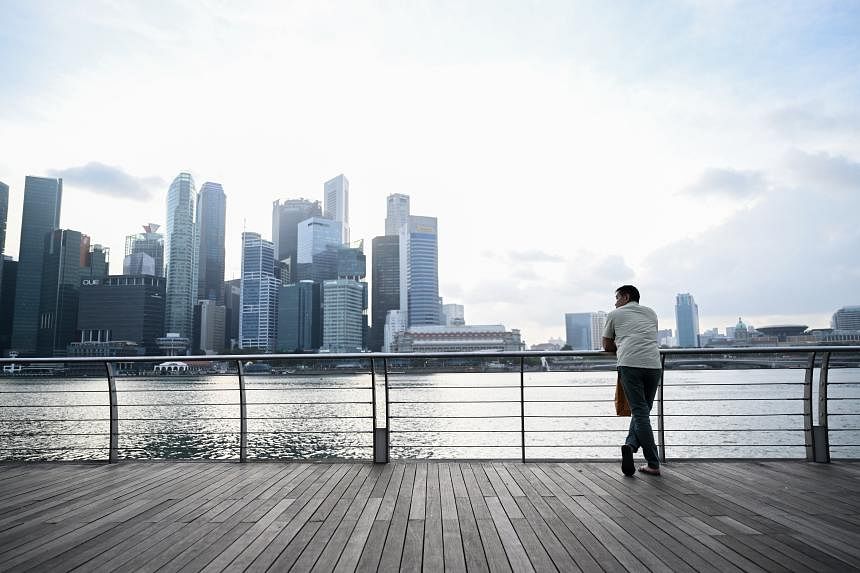SINGAPORE - Those who want to contribute to Singapore’s foreign relations must have a good understanding of Singapore’s core interests, said Senior Minister of State for Foreign Affairs Sim Ann.
These interests are based on principles such as upholding a just, inclusive and rules-based international order, and that sovereign states work with one another as equals, she told Parliament on Feb 29 during the debate on the Ministry of Foreign Affairs’ (MFA) budget.
Ms Sim noted that the recent use of the Foreign Interference (Countermeasures) Act (Fica) had raised questions by some in the Chinese community over the parameters by which businesses and civic groups can appropriately engage foreign organisations.
Hong Kong-born businessman Philip Chan Man Ping, 59, became the first person here to be designated a politically significant person under Fica on Feb 26.
Mr Chan was one of 30 international representatives invited in March 2023 to attend China’s Two Sessions parliamentary meetings as an “overseas Chinese representative”. Among other things, he told Chinese media then that overseas Chinese communities have to “tell China’s story well”.
Ms Sim said Singapore’s diversity is a strength, but also an opportunity for external forces looking to divide its people by appealing to specific racial or religious identities.
That is why Singaporeans must speak on behalf of multiracial Singapore, even when dealing with countries that the Republic has close and friendly relations with, she said in response to questions from MPs.
Mr Zhulkarnain Abdul Rahim (Chua Chu Kang GRC), Mr Edward Chia (Holland-Bukit Timah GRC) and Ms Tin Pei Ling (MacPherson) had asked how Singapore can remain vigilant against foreign interference in its domestic politics.
Ms Sim said the Government has taken pains to emphasise that the Republic’s foreign policy is not premised on neutrality, nor does Singapore seek to balance between the big powers.
She had noted in April 2023, during the debate on the motion of thanks to the President’s Address, that some people have come to take balancing between the United States and China as a yardstick to measure the success of Singapore’s foreign policy. But, she said then, balance is a perceived outcome and not an objective of its foreign policy.
Ms Sim said on Feb 29 that understanding that cultural affinity does not equate to national identity is also key.
Using Singaporeans of Chinese ethnic descent as an example, she said in Mandarin: “We are both Singaporeans and Singaporean Chinese (huaren), but not overseas Chinese (huaqiao).”
She added: “Members of the Singapore Chinese community, civic organisations and business associations that grasp the above points fully would be able to play an effective role as we seek to build win-win international partnerships.”
Ms Sim said Singapore’s Chinese civic and business leaders are fully aware of the importance of effective diplomacy to Singapore, tend to watch the different developments in its external relations closely and contribute actively to the discourse on Singapore’s foreign policy.
Many have been generous in sharing their insights from doing business and dealing with officials overseas, she noted. “Some even serve as our non-resident ambassadors. MFA is grateful for their contributions,” she said.
Separately, Minister for Law and Home Affairs K. Shanmugam answered questions from Workers’ Party MP Gerald Giam (Aljunied GRC) about the criteria for designating a politically significant person under Fica.
During the debate on the Ministry of Home Affairs’ budget, Mr Shanmugam said that specific criteria are spelt out in the Act, including that the individual must be a member of a foreign legislature or foreign political organisation, or the individual’s activities must be directed towards a political end in Singapore.
But the designation must also be in the public interest, he added.
Whether that is so would be assessed by the Registrar of Foreign and Political Disclosures, who would look at the individual’s past actions and statements, reach and influence, and especially how likely he is to be a target of foreign interference or influence, said Mr Shanmugam.
He stressed that being designated a politically significant person does not mean that a person has done some wrong, but that the individual has been assessed to be at a higher risk of being influenced by foreign agents.
“These are nuances which sometimes might be overlooked in public, but I thought I will set that out,” he said.
Mr Giam also asked if the Government would always announce if it intends to designate someone a politically significant person, to which Mr Shanmugam said he did not want to tie the hands of a future government.
“Where necessary, we will announce it publicly... so that Singaporeans are aware and, hopefully, it also shapes some behaviour,” he added.


